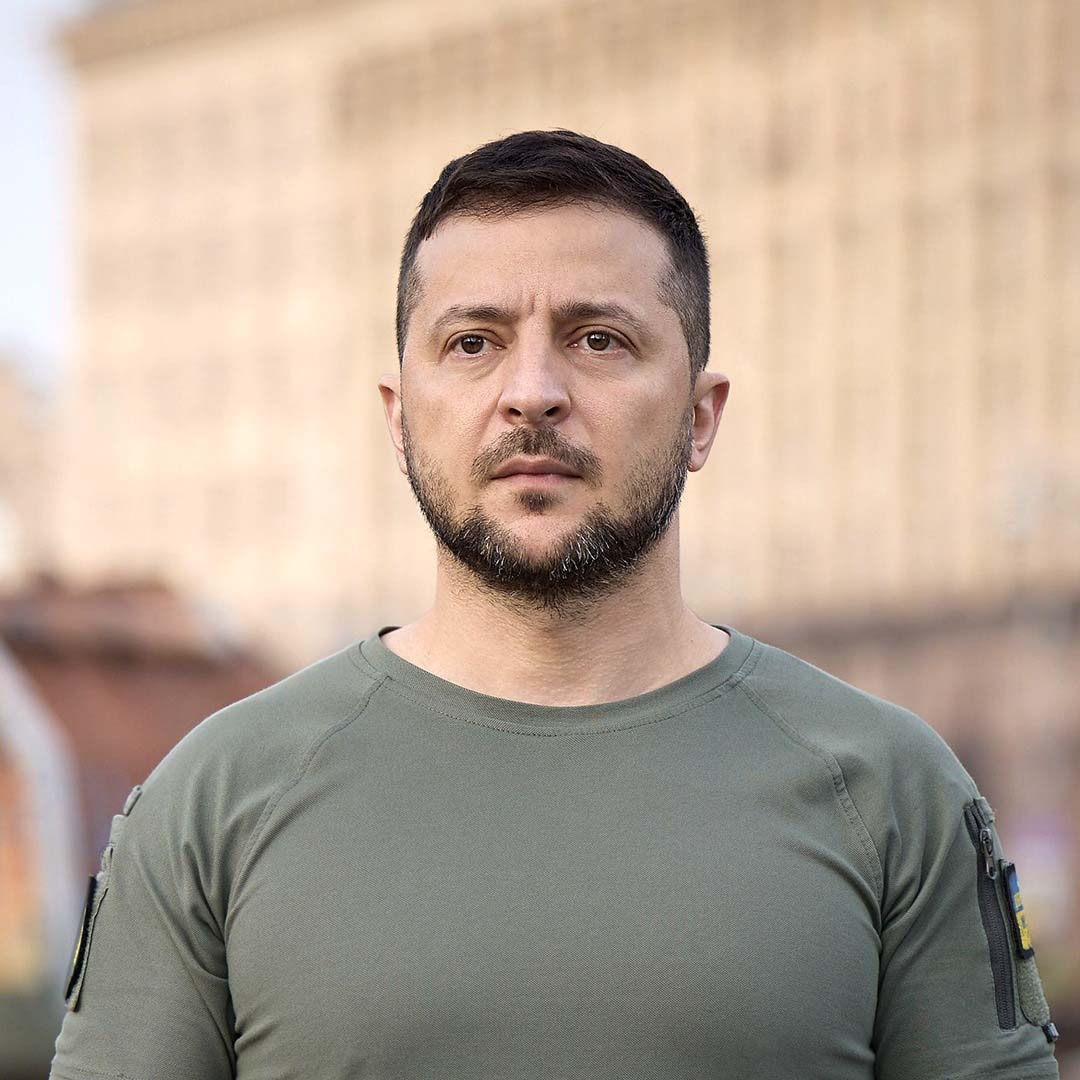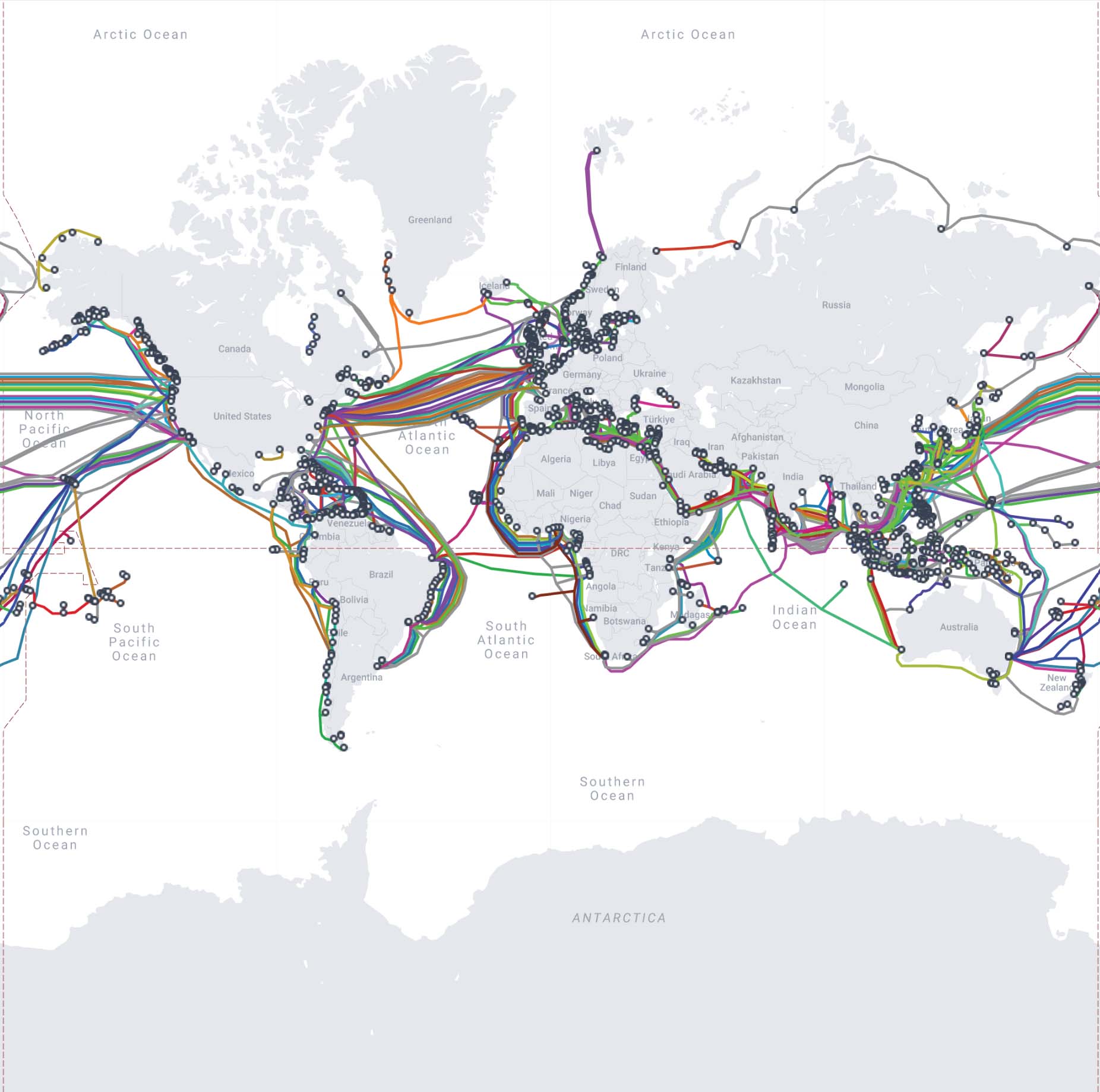- Opinion
- 09 Jun 23
Ukraine and Beyond: There Are Dangerous Forces At Work In The World

It has become increasingly clear, since Russian President Vladimir Putin launched his barbaric war in Ukraine, that we have entered a new, and extremely dangerous, phase in international relations. How well prepared is Ireland to deal with the mounting threats? And is our policy of neutrality still the best stance for us to take? Rather than reaching for pat answers, we need to think, and talk, about what it all means...
Every day now, I waken up with a feeling of anxiety. It can be more or less intense, depending on the circumstances, but it is there, lodged like a knot that can’t be undone in the pit of the stomach. If Russia has achieved any kind of success overnight, in the brutal war Vladimir Putin started when he ordered the Russian army to invade Ukraine just over fifteen months ago, I really don’t want to hear about it.
But there is no point in trying to hide either. If you care at all, you have to know.
The phone is turned on with a flickering sense of dread. Two hundred killed in Kyiv bombing. Russian forces hit Ukrainian parliament. Ukrainian army base hit by Russian missiles. Dozens of women and children die in Russian air strike. You imagine the worst before you read the headlines. Until you see them, anything might have happened.
When there is nothing catastrophic to report – just an overnight continuation of the stalemate that has prevailed over the Winter and into Spring, during which neither side has made advances worth talking about – there is an immediate, if muted sigh of relief.
For a moment, at least, that seems good. The volume of the horror show has been turned down.
There is, however, a flip side. A day of relative quiet on the ground does nothing to bring the grotesque reality of a war in which tens of thousands have already died any closer to an end. And so another appalling spectre also presents itself afresh every day. That this might go on forever, developing into a remorseless, grinding and utterly pointless war in which, over a period of years, hundreds of thousands die to no avail whatsoever.
How can this be possible? History, inevitably, provides the answer. The sheer insanity of World War II happened. So did World War I before it, There is, it appears, no end to human depravity.
SICKENING LOSS OF LIFE
Not that the war could ever be dismissed as pointless from a Ukrainian perspective. As people in Ireland must be aware, more than most, their cause is a righteous one, defending their sovereignty against the reckless incursion of a once-powerful imperial force trying to recreate what Putin imagines as the former glories of the Soviet Union – under which umbrella, the Kremlin effectively controlled almost all of Eastern Europe after the Second World War.
There is, therefore, no room for equivocation on this much: the decision to invade Ukraine was without a single shred of justification. It was arrogant, twisted, expansionist and genocidal. It was also extraordinarily stupid and disastrously misjudged.
Or to put if differently, it was a shameless gamble that went horribly wrong. Vladimir Putin, and his circle of Ministers and military advisers, assumed that “the West” would fail Ukraine. That what happened in Crimea in 2014 would be repeated. That the invasion would be condemned – but that this would be the extent of it. Political leaders all over Europe, and in America, would shrug their shoulders. Russia is Europe’s biggest supplier of oil and gas. What can we do?
The Russians would take control of Ukraine, instal a puppet government and it would again become a subservient satellite of Moscow.
Sometimes, history turns on a sixpence. We all know the story, but it bears repeating now: the US offered the President of Ukraine, Volodymyr Zelenskyy – even as the Russians plotted to assassinate him – evacuation to a safe haven. “The fight is here,” he told the Americans in response. “I need ammunition, not a ride.”

Volodymyr Zelenskyy
It was an epic and utterly inspiring statement of defiance that no one else would have matched. If he had not been President, who knows what might have happened? But he was.
“I am here,” Zelenskyy said in a social media post that same day, referring to the fact that he would be staying in Kyiv. “We are not putting down arms. We will be defending our country, because our weapon is truth, and our truth is that this is our land, our country, our children, and we will defend all of this.
“That is it,” he concluded. “That’s all I wanted to tell you. Glory to Ukraine.”
At first, the tide flowed against Ukraine. Russian tanks quickly bulldozed their way to the outskirts of Kyiv. Ukrainian resistance seemed lightweight.
But that proved to be a temporary phase: the amateurism of the Russian military, using a huge number of conscripts inexperienced in battle, was exposed, as the Ukrainian army began to out-think, out-manoeuvre and out-fight them. Very quickly, the Russians were forced into retreat, leaving tanks, weapons and other machinery behind them. The courage and resourcefulness of the Ukrainian resistance captured hearts and minds across Europe and in North America. And political leaders – especially in bordering countries – also realised very clearly that if Russia succeeded in invading and subjugating Ukraine, then there was no knowing where they might turn next.
Vladimir Putin had spoken about the break-up of the Soviet Union as one of the greatest catastrophes in history. The direction of travel was obvious, if his grievance gathered momentum. Finland. Latvia. Lithuania. Estonia. Poland. Moldova. Romania. They were all, to one degree or another, in the firing line. Only Belarus, under the dictator Alexander Lukashenko, cosied up to Moscow. The rest supported Kyiv.
There is no escaping this either: the war is a hugely costly, ongoing nightmare. The priority has to be to bring it – and the sickening loss of life and waste of resources involved – to an end. But it doesn’t matter what angle you come at it from: there can be no justification whatsoever for rewarding Russia’s murderous aggression and the war crimes they have committed.
CANNON FODDER
Over the past week, the news from the front had seemed reasonably positive. Ukraine was preparing its counter-offensive. They were slowly winning back territory around Bahkmut. Air defences seemed to be working relatively well, despite constant, indiscriminate bombardment from across the border in Russia. Analysts from the US and the UK expressed confidence that the Ukrainian counter-offensive would be “impressive.” That had to mean successful – though no one was prepared to spell out just how far the push might take them.
This morning, the tone and the context changed. Ukraine accused Russia of having hit the Nova Kakhovka damn, on the Dnipro River, approximately 30 kilometres east of Kherson, causing immense flooding overnight. The pictures pinging across the wires make the appalling scale of the disaster clear. The Russians have counter-accused Ukraine of shelling the dam. It hardly surprising that no one in this part of the world believes them even for an instant.
Plans were immediately announced to evacuate the area downstream, with tens of thousands affected: a whole new wave, you might say, of internally displaced Ukrainians to be taken care of.
The dam has – since the beginning of the invasion – been controlled by Russia, and Ukraine warned, late last year, that Russia had planted explosives inside the dam. Ukrainian intelligence sources have warned now that the scale of the ecological disaster will go far beyond the borders of Ukraine and affect the entire Black Sea area. The Ukrainian foreign minister Dmytro Kuleba has described the destruction of the dam as Europe’s largest technological disaster in decades and a heinous war crime.

Ukrainian Foreign Minister Dmytro Kuleba
Reports suggest that, for now, there is no immediate danger at the Zaporizhzia nuclear power plant, which normally uses water from the dam in its vital cooling systems. But that might change if anything were to happen to the cooling pond next to the site, which is above the height of the reservoir and will be required to cover the plants cooling needs over the coming months.
Central to all of this is a question that is keeping more than a few people awake at night: just how far might a desperate Vladimir Putin go, in the event that Ukraine successfully drives the Russian army back across the border. More particularly, what will he – and his more extremist henchmen – do if his troops are finally driven from Crimea, a province of Ukraine that Russia has held since 2014?
Putin has more than once threatened the use of nuclear weapons. The feeling initially was that he would not want to take the risk of losing the support of China. But is that a reliable assumption? What he has done so far, in trying to save political face, and place as many obstacles as possible in the way of Ukrainian progress on the battlefield, suggests that there are few if any limits to the savage destructiveness of which he is capable.
That he does not care about the people of Russia is clear from the extent to which tens of thousands of soldiers have been treated as cannon fodder. And there do not seem to be any saner voices in his inner cabal. It is a desperately bleak scenario.
WHAT’S HE BUILDING?
All of this impinges on Ireland’s sense of its own position in the world. We have an established policy of neutrality. The working assumption has always been that this would protect us from invasion or attack. But the rules of the international geopolitical game have been changing fast. A number of members of staff at the Russian embassy in Dublin were expelled last year, following confirmation that they had been involved in meetings and discussions with violent ‘dissident’ Republicans and extremist Loyalists alike.
Russia, and its agents, have an established track record of interference in elections and referendums in the US, the UK and elsewhere. It takes no great leap of the imagination to conclude that they are likely to be in the business of meddling in Irish democracy. They will help to promote the far right, if they possibly can. They will use social media trolls and bots to stir up anti-immigrant venom. They will undermine democracy at every turn, wherever they can. As a committed member of the EU, Ireland is in their sights.
They have also developed an expertise in cyber-crime, stealing information and data, installing malware and bringing IT systems down, as happened with the HSE, in a ransomware attack, carried out in May 2021.
Is it possible to be completely neutral in the face of mercenary and utterly unscrupulous threats of that kind?
The truth is, of course, that Ireland does not have the military strength, nor the sea or air power, to withstand any threat from Russia or elsewhere. Have we the planes to police our airspace? Or the ships to patrol our territorial waters? The answer is no.
Ten, fifteen or twenty years ago, no one thought about these things. We imagined ourselves above it all. Now, with Russian ships blithely sailing down our West coast and engaging in scoping exercises – 'Hey, we’re just watching the fish grow!' – it is clear that we are not. I am reminded of the great Tom Waits song: ‘What’s He Building In There?’ What is Vladimir Putin up to sending his ships into Irish waters? What are the ship commanders up to, on their strange and deeply unsettling manoeuvres?
Again, no great leap of inspiration is needed. The UK has already accused Russia of using submarines to monitor undersea communications cables landing there.

Submarine cable map
WISE SOLUTION
The UK and Ireland are linked to the US by a series of underwater cables that carry the vast bulk of the communications between these countries across the floor of the Atlantic ocean. The connections to the UK may be of greater strategic importance, but they also run across the southern coast of Ireland and out into the Atlantic. Besides, a significant number of US multi-nationals have their European bases here. Ireland is the route to Europe for some of the richest corporations in America. In the event of an emergency, those cables would take on a new level of importance. And either way, cutting them would cause an enormous amount of disruption and panic.
The fact that the United States has been arming Ukraine, in effect potentially giving it the capacity to win the war against Russia on the ground, makes it – and its economic interests – a legitimate target for the Great Bear. Is there a problem standing on Irish toes to make it much more difficult for the US to function? Clearly, for the Russian military, there isn’t.
Besides, underwater cables from Ireland head off in all sorts of different, interesting directions. A new cable, scheduled to be completed this year, will run from Thorlakshofn on the south coast of Iceland to Galway bay, before going above ground to Dublin – which is described as “a major network hub in Europe.” Meanwhile, the Far North Fiber, a cable linking Europe to Japan while steering clear of Russian waters, will also come ashore in Galway.
So who is going to carry out the necessary security functions to ensure that these cables are not sabotaged? We have recently discovered that the RAF, on the basis of an agreement with the Irish Department of Defence, the Department of Foreign Affairs and the Irish Aviation Authority, has been undertaking that role in relation to our airspace. “Basically,” George Allison reported on the UK defence journal website, “the Royal Air Force launches Typhoon fighter jets to intercept unidentified aircraft in the Irish ‘Flight Information Region’ for air policing duties because Ireland is incapable of doing so itself.”
What does that say about our neutrality?
I don’t claim to have the answer. But national boundaries mean little or nothing where the internet, and in particular social media companies and others that are involved in the (rotten, but that's a different story) business of surveillance capitalism, are concerned. As a long-time pacifist, who instinctively believed that arms control and de-militarisation were the way forward, I have to admit that a lot of my working assumptions have been grievously undermined. In a world of hybrid warfare and orchestrated cyber attacks, acts of interference, aggression and sabotage can be carried out without ever putting boots on the ground.
It would be wrong to depict Russia as the only actor at large in this space. The United States has always had operations far beyond its shores. The same is true more recently of China. But right now, the most immediate threat to Ireland and to Europe comes from Russia – who have successfully highlighted just now vulnerable we are in the current volatile and increasingly dangerous geopolitical climate.
So, where do we go from here? I don’t know the answer to that question either. But I can say that all of the old assumptions feel less than adequate to the new world disorder.
We really do need to talk, to see if we can find the right, properly balanced, honest and wise solution.
RELATED

- Opinion
- 17 Dec 25
The Year in Culture: That's Entertainment (And Politics)

- Opinion
- 16 Dec 25
The Irish language's rising profile: More than the cúpla focal?

- Opinion
- 13 Dec 25







